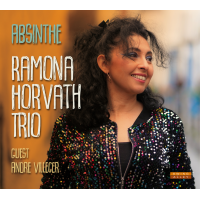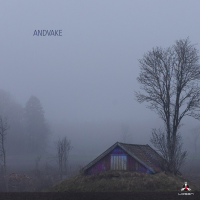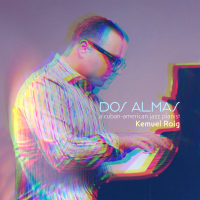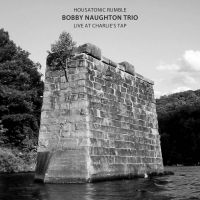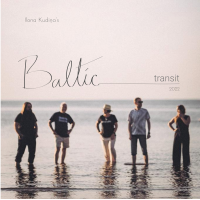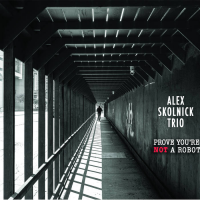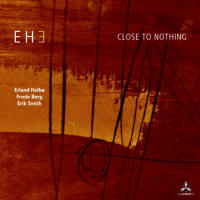Home » Jazz Articles » Extended Analysis » Mieczyslaw Horoszowski and Andr?Schiff?s: Bach to Bach: ...
Mieczyslaw Horoszowski and Andr?Schiff?s: Bach to Bach: An Old Man's Vision and a Young Man's Promise Kept
 Johann Sebastian Bach is considered the leading Baroque composer with only fellow German G.F. Handel to contend with for the title. To be sure, Bach was a transfiguring muse for the music pioneered by Antonio Vivaldi, Domenico Scarlatti, Heinrich Sch?nd Archangelo Corelli. Bach was born in Eisenach, Germany March 21, 1685, where he was taught violin and harpsichord by his father Johann Ambrosius Bach, who was the court trumpeter in the service of the Duke of Eisenach. Orphaned at age 10, Bach went to live with his older brother, Johann Christoph. The younger Bach's innate musicality and excellent singing voice scored him his first musician position at Michaelis Monastery in L?g, where he stayed as an instrumentalist after his voice broke.
Johann Sebastian Bach is considered the leading Baroque composer with only fellow German G.F. Handel to contend with for the title. To be sure, Bach was a transfiguring muse for the music pioneered by Antonio Vivaldi, Domenico Scarlatti, Heinrich Sch?nd Archangelo Corelli. Bach was born in Eisenach, Germany March 21, 1685, where he was taught violin and harpsichord by his father Johann Ambrosius Bach, who was the court trumpeter in the service of the Duke of Eisenach. Orphaned at age 10, Bach went to live with his older brother, Johann Christoph. The younger Bach's innate musicality and excellent singing voice scored him his first musician position at Michaelis Monastery in L?g, where he stayed as an instrumentalist after his voice broke.Between this time and the end of the great composer's life, he would marry twice, produce on the order of 20 children, and create a Canon of music that is still revered 300 years later. A true monument among Bach's works is his catalog of keyboard music. Primarily composed for the 18th Century harpsichord, much of this music has been produce and recorded on piano since the astounding and groundbreaking Goldberg Variations recorded by Glenn Gould in 1955.
Famed harpsichordist Wanda Landowska, a stanch supporter of traditional Bach performance, once ended an argument with Pablo Casals with the retort, "Very well, my dear: you play Bach your way, and I'll play him his way." Her attitude toward Bach played on the piano was as acerbic. Landowska's famous statement becomes ironic after you've heard Glenn Gould and the scores of fine pianists to take on Bach's glorious canon. The modern piano brings out every fine distinction of counterpoint in these works, illuminating their full complexity.
Two fine Bach piano performances came to my attention at the end of last year, warranting a bit of discussion. The first, by Polish Pianist Mieczyslaw Horoszowski is entitled Bach Recital. Bach Recital was recorded between 1958 and 1986 and released on Arbiter Records (113, 1998). The recording consists of live performances of the English Suite No.2 in A minor, Partitas Nos. 2 and 5 in C minor and G, respectively, two preludes and fugues from Book II of The Well-Tempered Clavier and two preludes and fugues for organ. The second outstanding Bach performance is the Hungarian Andrá³ Schiff's second recording of The Goldberg Variations, released in 2003 on the ECM label (ECM New Series, 1825). Each man represents the same continuum in Bach performance, effectively spanning all of the 20th Century.

Mieczyslaw Horoszowski was born in 1892 and was studying piano by age 3 with his mother, who had peen a pupil of Karol Mikuli, Frederick Chopin's assistant. This is an auspicious beginning. When Horoszowski was 7-years old he took part in a recital held in Dad Kissingen, Germany, performing a selection from Bach Two and Three-Part Inventions and a section of Tchaikovsky's The Seasons, which were captured on wax cylinders. His last recordings were made in 1992, shortly after his 100th birthday. His playing was as refined and balanced as ever. Horoszowski studied with the great Theodor Leschetizky, a contemporary of Franz Liszt. Horoszowski was encouraged by Donald Francis Tovey to study all of Bach's keyboard music, which he did and continued to do for the remainder of his long life.
The Arbiter collection is a very specific exposition of Horoszowski's expansive talent. This Bach is crystalline and transparent, sensibly paced and pedaled. The Partita selections, in particular, are exquisitely refined with perfect musical bouquets and finishes. His interpretations of the Liszt transcriptions of the Organ Prelude and Fugue in A minor as intricate as lace and durable as iron. Horoszowski's command of Bach is as complete as Glenn Gould's without Gould's bombast and fast pacing.

A native of Budapest, Hungry, 50-year-old Andr᳠Schiff has been playing piano since age 9. There he studied with Elisabeth Vadasz, making his concert debut at the age of nine. At 14, Schiff began formal studies at the Franz Liszt Academy in Budapest, where he studied with PᬠKadosa, Gy? Kurtag, and Ferenc Rados; later, he studied with British conductor and keyboard player George Malcolm in London. Mr. Schiff came to international prominence as gold medalist in the 1974 Tchaikovsky Competition in Moscow. Over the next few years, he won top honors at the Leeds and Liszt Competitions, launching him on a successful concert and recording career that has included surveys of all of Mozart's piano sonatas and concertos and the better part of Bach's keyboard music.
Mr. Schiff has recorded The Goldberg Variations on two occasions. The first was his 1986 London (417116) recording, which was extremely well received. His second recording was released at the end of 2003 on Manfred Eicher's ECM label. In the almost 20 intervening years, Mr. Schiff's understanding of the aria and variations and deepened and broadened. His playing is more rugged and robust that his previous recording, indicating that Schiff no longer fears bruising the otherwise durable Bach. He approaches this second outing with firm authority and a well-balanced vision. This is a superb treatment of this keyboard masterpiece and should bot be ignored. In fact, neither Horoszowski's nor Schiff's Bach should be ignored and both should be considered the finest available.
Personnel
Album information
Title: Bach to Bach: An Old Man's Vision and a Young Man's Promise Kept | Year Released: 2004
Tags
PREVIOUS / NEXT
Support All About Jazz
 All About Jazz has been a pillar of jazz since 1995, championing it as an art form and, more importantly, supporting the musicians who make it. Our enduring commitment has made "AAJ" one of the most culturally important websites of its kind, read by hundreds of thousands of fans, musicians and industry figures every month.
All About Jazz has been a pillar of jazz since 1995, championing it as an art form and, more importantly, supporting the musicians who make it. Our enduring commitment has made "AAJ" one of the most culturally important websites of its kind, read by hundreds of thousands of fans, musicians and industry figures every month.








